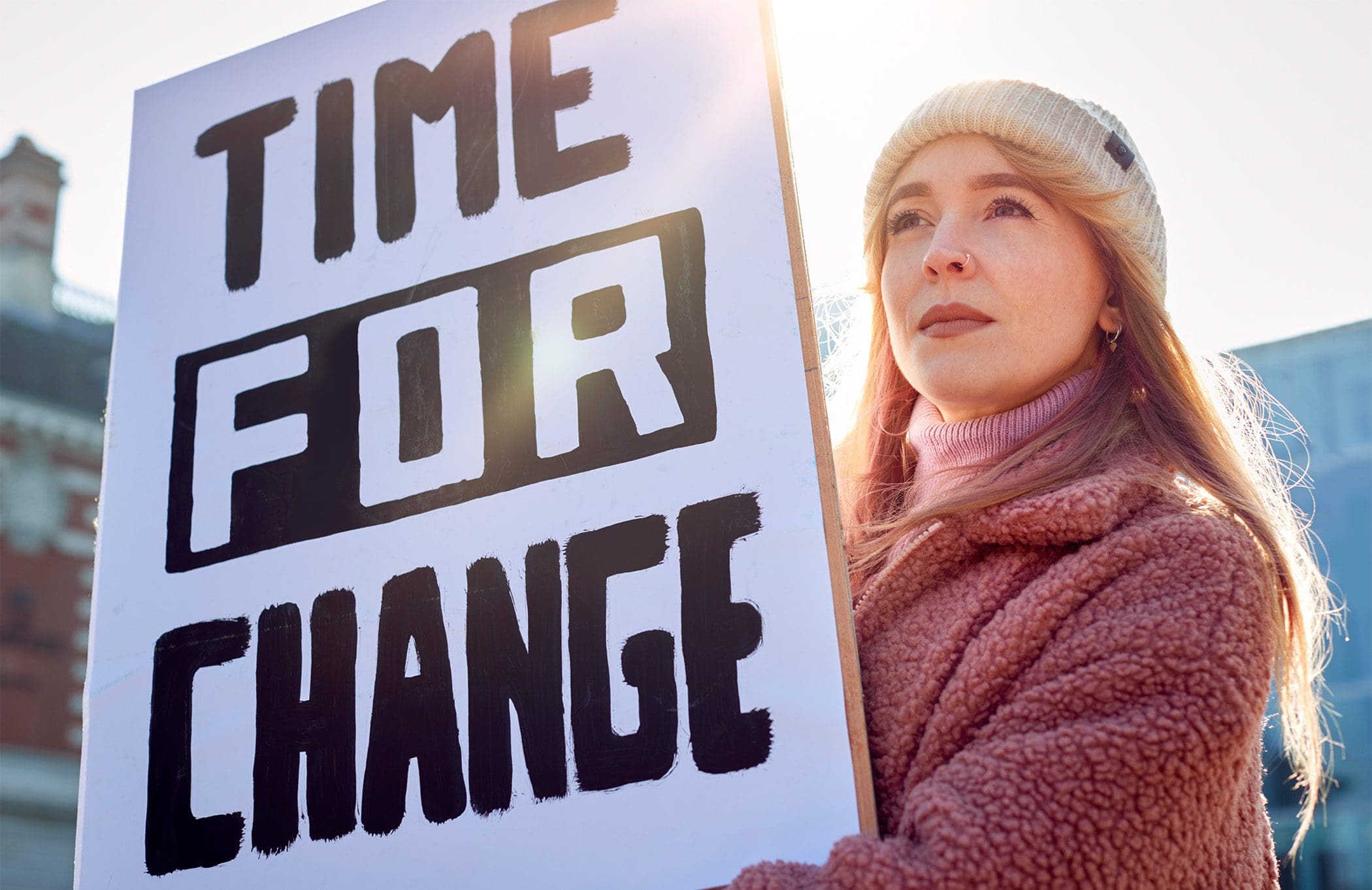By: Colin Drury
It’s near the end of the month, and all 2.1 million adults living here have just had – as they do every month – £995.85 paid into their bank accounts by the government.
For this, they have done nothing. It is free money, no catch or conditions. Fill your boots. Spend it as you wish.
“It sounds a radical concept, and it is,” says Matthew Johnson, professor of politics at Northumbria University.
“But if you look at the detail, this could solve so many social problems that I think it can’t be dismissed anymore.”
The idea of a universal basic income – where every person is effectively given an allowance by the state to cover basic living costs – is one that is fast entering the political mainstream. And one that Andy Burnham, the mayor of Greater Manchester, has now said he wants to see piloted in his region.
“It would reduce poverty to almost unheard-of levels, address the inequality both between and within regions … and provide a foundation for our young people to secure good lives that support good mental health,” he wrote in a newly-published report co-authored by Johnson and funded by the left-of-centre Compass campaign group.
Proponents say a UBI would lead to happier, healthier and more prosperous lives. Studies suggest it could wipe out deprivation, reduce NHS demand and encourage greater educational attainment. Because it would effectively replace the complexities of the current benefits system, some say it would engender a sense of social cohesion and equality: everybody gets something, and nobody (except in certain specific circumstances) gets any more.
So, could it really happen? As the cost-of-living crisis continues to highlight how ineffective the UK’s current social security system is, might we be on the cusp of free money for all?
When Professor Johnson began researching how popular a universal basic income would be with northern voters, he wasn’t sure it would have mass appeal.
As Jeremy Corbyn found out when he promised free broadband ahead of the 2019 election, the British people are resolutely sceptical of a free lunch. They instinctively understand the bill is always in the post.
Yet what Johnson and his co-authors discovered was overwhelming support for a UBI.
As detailed in their Winning The Vote report, some 70-80 per cent of those questioned backed such a payment. The most popular proposal was the one imagined above, where everyone received almost £1,000 a month.
Why so? Perhaps because there was an understanding that this wasn’t really free money.
“People get that there would be increased tax contributions to help fund it,” explains Johnson. “But it is the simplification – and the fairness – of the system that holds the appeal.
“What we have seen over 15 years of various crises going back to the financial crash – and certainly with the current cost of living crisis – is a realisation that the risk of destitution is far wider than it once seemed. You can have a good job and still have to choose between heating or eating. And, so, I think, voters feel that a generous UBI would offer real security to everyone, while also having at its heart this real sense of everyone getting the same.”
Certainly, the benefits of such a system could be profound.
According to an earlier research paper also co-authored by Johnson, an effective UBI could help lift so many people out of deprivation that poverty would fall to its lowest levels in 60 years. Even a more conservatively modelled estimate by the Institute for Social and Economic Research in 2021 suggested such a scheme could reduce hardship by 16 per cent. Tim Berners-Lee, the man who invented the internet, has suggested it is the best way he can think of to address inequality. Pope Francis said it a flat payment for all would “guarantee…dignity”.
Crucially, it could also stimulate economic growth, improve educational outcomes, and generate cultural output. That’s because by giving people greater financial security, it opens up breathing space for them to explore entrepreneurial ideas, learn new skills, study new qualifications or partake in artistic endeavours.
And, while opponents argue the bill would be eye-watering – cig packet maths show giving every English adult £995 would cost more than £40 billion a month – proponents say this would be good value.
How so? Because evidence suggests that guaranteeing a person’s income leads to improved physical and mental health, while also reducing their likelihood of falling into crime.
Ultimately, a UBI would – so the argument goes – save the country huge amounts of money by reducing the number of social ills that had to be dealt with downstream. It could, for instance, demolish the £118 billion spent on mental well-being provisions every year. By rendering redundant much of the work of the Department for Work and Pensions, it would also save huge amounts of its annual £200 billion budget.
“We must not suggest it’s a silver bullet to all problems because there’s no such thing,” says Lena Swedlow, campaigns and projects officer with Compass. “But destitution lies at the heart of so many of these issues – whether that be health or education – and if we place this genuine income floor beneath people, it helps prevent that destitution in the first place.”
Perhaps for all these reasons, political parties including the Lib Dems, Greens and Plaid Cymru have all now committed to trials. Several Labour ministers are said to like the idea in theory. In Wales, a two-year experiment has just begun where all young adults leaving care will be given £1,600 a month. In the North East, Jamie Driscoll, Labour’s North of Tyne mayor, has said that, similar to Burnham, he would like to host a trial in his region.
“Every business I talk to tells me what they need for growth is not tax cuts, but more skilled workers,” he says in a swipe at prime minister Liz Truss. “And what UBI gives people is the freedom and agency to increase their skills, increase their employability and increase their earning potential.”
Would he, as a political leader, accept £1,000 being pumped into his account every month? He would, he says, “because it’s connected to the tax system, so it is entirely fair for everyone”.
He wouldn’t see it becoming potentially politically toxic to accept? “Only if people ask daft questions,” he replies.
Daft questions or not, not everyone is convinced by the concept.
Opponents say a universal payment would be unwieldy to administer and disincentivise people from looking for work. “On a philosophical level, I think it would encourage people not to seek employment,” says Russell Bernstein, the Conservative leader of Bury Council within Greater Manchester. “On an economic level, I think it would be far too expensive. There’s no logic to it I can see.”
The Centre for Social Justice – the think tank founded by Iain Duncan Smith – has, meanwhile, argued that UBI would not be able to meet the complex support needs of many households. Because some people – disabled people, for instance – would still require extra financial assistance, large elements of the current welfare system would have to remain in place anyway, it points out.
“Assuming the primary aim of UBI is to tackle poverty, there is little or no evidence to suggest it would achieve its aim,” says Matthew Patten, the centre’s political and communications director.
More pertinently, perhaps, are trials that have been held in other parts of the world. While these have shown some positive outcomes – a two-year-long scheme in Finland suggested improved health and increased motivation to find work – not a single such trial has ever been continued or become permanent policy. “Many of the arguments in favour of UBI do not hold up in reality,” says Patten.





















